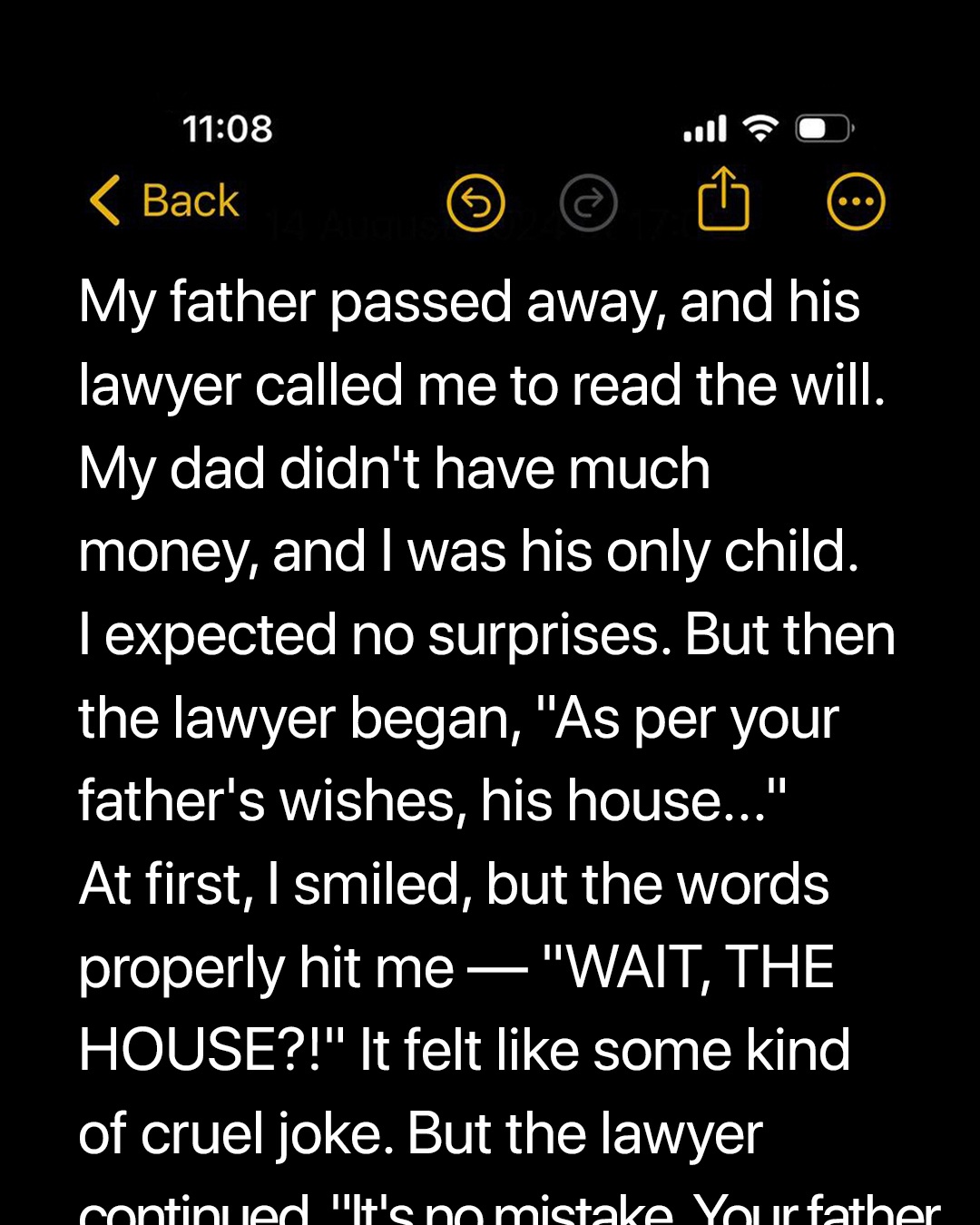When my father passed away, he left me a house I never knew existed. I thought it was a mistake—until I found a woman living there who claimed it was hers. What she revealed shattered everything I believed about my past. It was a cold, rainy afternoon when I arrived at the notary’s office, still numb from the loss of my father. We had shared a difficult few years—debts, foreclosure, and a silence that hung heavier than words. As I sat in that quiet, dusty office, I didn’t expect anything to change. But then the notary mentioned a house—one not connected to our family home, one I had never even heard of. Confused and overwhelmed, I took the documents with shaking hands. Why had he never told me about it? Curiosity—and a strange sense of hope—led me there the next day. It was tucked away on a peaceful road, surrounded by golden autumn trees. The house had an old charm to it, but something about it felt… unsettled. When I tried the key, it didn’t work. Then the door flew open. An older woman—stern, sharp-eyed—stood in the doorway. “Can I help you?” she asked, clearly annoyed. “I think this is my house,” I said, showing her the key. “It was left to me by my father.” Her expression hardened. “This is my house. I’ve lived here for twenty years.” She refused to budge, and I refused to back down. I had nowhere else to go. So I stayed—under the same roof with a woman who clearly hated me. Her name was Deborah. She made it her mission to drive me crazy: midnight noise, “mysterious” plumbing issues, missing items. Still, behind her pettiness, I sensed deep pain—like she was protecting something she couldn’t afford to lose. Then, one morning, after finding my clothes thrown in the mud, I exploded. Demanded to know why she was treating me like the enemy. That’s when everything changed. She stared at me and said, “This house was never meant to be yours. Your father took you—and left me behind.” Her words knocked the breath from my lungs. She reached into her pocket and pulled out a small bracelet, engraved with my name and birthdate. “I’m your mother,” she whispered. I couldn’t process it. She told me how she had left when I was a baby, thinking she’d find a better life, only to be abandoned herself. When she returned, my father refused to forgive her and took full custody. He told me she was gone. Dead. But she had lived here ever since—waiting, surviving, mourning. The days after her confession were silent. When our court date arrived, the judge ruled that the house legally belonged to her. She had lived in it, cared for it—it was hers. I packed to leave, heartbroken and more lost than when I arrived. But just as I reached the door, she stopped me. “I don’t want you to leave,” she said, tears in her eyes. “I lost you once. I don’t want to lose you again.” I turned slowly, unsure if I could trust her—but needing something to hold onto. “You really mean that?” She nodded. “We can try again. I want to.” We embraced—tentative, painful, but real. Over the following weeks, we began to rebuild, one day at a time. We cleaned, sorted old belongings, and uncovered memories buried in boxes and silence. That house—once a mystery, then a battleground—became something new: a place of truth, healing, And second chances. I learned that family isn’t perfect. Sometimes, it’s broken. But with love and forgiveness, it can be rebuilt
My Late Father Left Me a House, but the Woman Living There Revealed a Secret That Changed Everything
